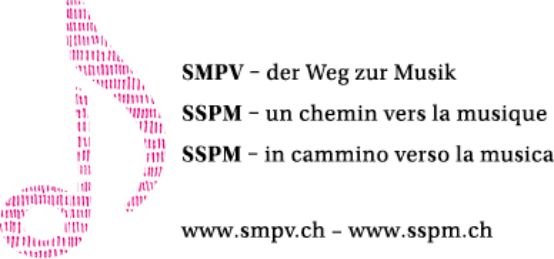"You have to be there" - interview with Brigitte Scholl

Singer Brigitte Scholl has been central president of the SSPM since 2008. She looks back on five eventful years, and talks about the challenges facing the association in the coming years.
Brigitte Scholl handed in her mandate at the last SSPM Delegates' Meeting.
Brigitte Scholl, how did you get into music?
On a whim! I must have been five years old when I heard the Biel Symphony Orchestra at a summer concert - and I knew then that I wanted to become a musician.
I started out playing the cello, and later went on to study cello. At the same time, I began to study singing, which I eventually completed.
What prompted you to become actively involved in the SSPM?
My grandparents were watchmakers, my father a railroad worker. For them, involvement in their industry's professional association was a matter of course. When the former president of the SSPM in Berne, Hans-Eugen Frischknecht, asked me if I would like to work as a delegate for the SSPM, I agreed. It was as simple as that...
What was your job at the Berne branch, and how did you come to join the central committee?
At first, I was in charge of continuing education, and a year later I became president. We were beginning to realize that the association needed to broaden its network of contacts, for example with the Bernese Association of Music Schools. Later, as President of the Conference of Section Presidents, I was asked by the central association to act as an extraordinary deputy auditor. Following this, I was asked if I would like to join the central committee.
In 2008, you became President of the SSPM. What projects did you take on, and what were your priorities?
During Professor Jakob Stämpfli's presidency, I was SSPM treasurer. We had inherited 150,000 francs in book debts. It was clear that we had to outsource professional training to a debt-free foundation. First, we had to bail out the SSPM's finances; between 2005 and 2008, we did little more than clean up, and had to impose strict budget restrictions on ourselves. Thanks to Jakob Stämpfli, these measures were successfully implemented. In 2008, I took over an association with no capital of its own, but which was at least debt-free. From 2008 onwards, I also concentrated on rebuilding and expanding the SSPM's networks. In addition, we systematically pursued the professionalization of the administration begun under the presidency of Jakob Stämpfli.
You mentioned networking - what are the most important points here?
The most important thing is attendance. Very often, important decisions are made during personal meetings, or sometimes over drinks afterwards. The big associations are professionally managed and hold their meetings during normal working hours, so we have to organize ourselves accordingly, which is a big challenge. The rest is simple: we exist, we are perceived and listened to. But to do that, you have to be present.
How did you feel the atmosphere within the association during your five years as president?
In my opinion, two things have significantly improved the atmosphere. The first was the decision to provide simultaneous translation of the Delegates' Meeting. The second was to provide detailed, transparent documentation and arguments in advance of the Annual General Meeting and Presidents' Conference. These measures have ensured that no one feels left out or unable to make themselves heard, as was regularly the case in the past, not least for linguistic reasons.
Today, the SSPM is once again well established and has achieved a great deal, not least in cooperation with other associations. However, we are feeling the weight of demographic change, which is having an impact on membership numbers, as is the professionalization of the major associations. Financially speaking, we are operating at the limits of our possibilities. Will the SSPM become more expensive in the near future?
It's important to differentiate between the two. Today, increased professionalism has become unavoidable. But we need to find the right balance. Above all, it's important to avoid duplication: which tasks could be performed by a Music Council, for example, and which should we take over in return? We can't increase our membership fees as we see fit, as our customer base in general would not be able to afford it, and is also very heterogeneous - so we must never lose sight of what is bearable for our most financially fragile members. But in the medium term, a moderate increase should be possible and acceptable.
What challenges do you see the SSPM facing in the coming years? What substantive priorities can it set now that professional training has been outsourced?
The first thing I think about is demographic change. If the SSPM is to be taken seriously in political circles, it needs to be big enough. I see two problems here: on the one hand, there are fewer recruitable members than in the past, due to increased international mobility. On the other hand, our members will be faced with profound changes. Percentages of positions will inevitably disappear because there are fewer children, and the clientele of music teachers will change, which will also represent a major challenge for our association. Having said that, I'd like to point out that the SSPM, according to a USS study on membership fluctuation, is doing relatively well compared with other organizations - which means that the work done by our association isn't all that bad, and that the traditionally heterogeneous composition of members and fields of activity has proved its worth.








